Brokers
The Best Stock Brokers in the UK
This article was updated as of 7th May 2025.
Knowledge is power, and this is especially true when it comes to investing in stocks. One of the most important decisions you will make as an investor is choosing a reliable and efficient broker to handle your investments.
How to know which broker is most adapted for your needs? That is precisely what we will explain in this article! Through careful research and comparison of the available options, you will be able to make an informed decision about the best stock brokers we recommend.
Best Stock Brokers for UK Shares
It’s often said that the best place to begin investing is with what you know – and that usually means starting close to home. For investors in the UK, this typically involves focusing on companies listed on London stock exchanges. This approach is not only sensible but also widely recommended for those taking their first steps in the world of investing.
Investing in UK-listed companies offers several advantages. As a local investor, you’re more likely to recognise the businesses, access relevant news and analysis with ease, and understand the broader economic context. Regulatory requirements are also clearer and more familiar. Additionally, when buying shares listed on UK exchanges, you’ll typically face lower transaction costs and avoid complications such as foreign exchange fees or double taxation on dividends.
If you’re looking to build your portfolio with UK shares, here are three brokers that provide excellent conditions for investing in UK-listed companies:

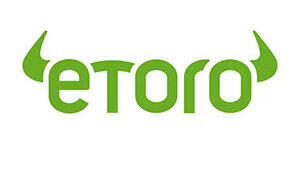

Interactive Brokers
Interactive Brokers is known for its low-cost, professional-grade trading platform. It’s particularly suitable for more experienced investors or those looking to access global markets.
Key benefits:
- Extremely low trading fees and tight spreads
- Access to the London Stock Exchange (LSE) and other global markets
- Advanced research tools and analytics
- Suitable for both retail and institutional investors
Read our Interactive Brokers review to learn more.
eToro
eToro is a user-friendly platform that offers commission-free trading on UK shares. It also supports fractional share investing and social trading features
Key benefits:
- Commission-free trading on many UK stocks
- Intuitive, beginner-friendly interface
- “Copy Trading” allows users to mirror the portfolios of successful investors
- Access to UK and international stocks, ETFs, and cryptocurrencies
Read our eToro review to learn more.
- Equities, ETFs, crypto both real and derivatives
- Social trading e copy trading
- User-friendly platform and demo account
61% of investor accounts lose money by trading CFDs with this provider.
Trading 212
Trading 212 is another commission-free platform that has gained popularity in the UK and Europe. It’s known for its simplicity and access to fractional shares.
Key benefits:
- Commission-free trading on UK-listed shares
- Fractional share investing starting from as little as £1
- Easy-to-use mobile and web platforms
- ISA account option available for UK residents (tax-efficient investing)
Read our Interactive Brokers review to learn more.
Advantages of investing in UK companies:
| Advantages | Cons | ||
| ✅ Greater knowledge of and proximity to the local market. | ❌ Diversification of a portfolio by country is critical. | ||
| ✅ Better access to information | ❌ It is difficult to find great opportunities in the U.K. | ||
| ✅ Clear legal certainty for companies listed on the continuous market. | ❌ Excessive regulation for our companies. | ||
| ✅ The U.K is a country of dividends. | |||
| ✅ No double taxation for foreign dividends. |
| Advantages | Cons |
| ✅ Greater knowledge of and proximity to the local market. | ❌ Diversification of a portfolio by country is critical. |
| ✅ Better access to information | ❌ It is difficult to find great opportunities in the U.K. |
| ✅ Clear legal certainty for companies listed on the continuous market. | ❌ Excessive regulation for our companies. |
| ✅ The U.K is a country of dividends. | |
| ✅ No double taxation for foreign dividends. |
Best Stock Brokers based in UK
And if we take this a step further, it’s worth considering brokers that are headquartered or maintain a strong presence in the UK. Choosing a broker with offices in the UK offers additional benefits, such as direct customer service in English and the reassurance of local regulation under the Financial Conduct Authority (FCA).
For some investors, the ability to speak with someone locally or even face-to-face can make a significant difference in comfort and confidence.
If personalised support, local knowledge, and regulatory transparency are important to you, a UK-based broker or investment platform could be the right fit. Here are a few well-established names in this category:
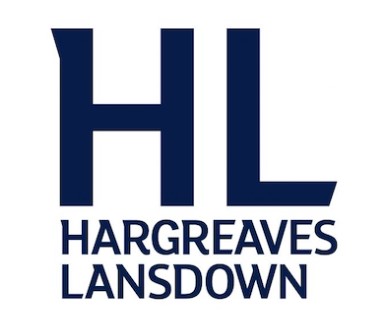
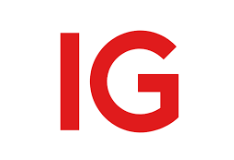

Hargreaves Lansdown
Hargreaves Lansdown is one of the UK’s largest and most respected investment platforms, particularly popular with long-term investors and those managing pensions or ISAs.
Key benefits:
- FCA-regulated and based in Bristol, with strong customer support
- Wide access to UK and global shares, funds, ETFs, and bonds
- Excellent tools for portfolio management, research, and retirement planning
- Strong reputation for reliability and transparency, especially for ISA and SIPP accounts
Read our Hargreaves Lansdown review to learn more.
IG
Founded in London, IG is one of the UK’s oldest, most trusted and best online trading platforms, serving both retail and institutional investors.
Key benefits:
- Extensive product offering, including UK shares, indices, forex, and more
- FCA regulation and strong reputation for reliability
- Powerful trading tools and market analysis
- Access to both traditional investing and leveraged trading
Read our IG review to learn more.
CMC Markets
CMC Markets is another UK-based broker with a long-standing presence in the industry. Known for its award-winning platform, it caters to a wide range of investors and traders.
Key benefits:
- Comprehensive platform with customisable tools and charts
- FCA-regulated and publicly listed on the London Stock Exchange
- Competitive pricing across thousands of instruments
- Strong educational and research resources
Read our CMC Markets review to learn more.
| Advantages | Cons | ||
| ✅ Regulated by the FCA. | ❌ Commissions sometimes more expensive for foreign markets. | ||
| ✅ In case of bankruptcy, a claim must be filed with a national regulatory body. | ❌ Many bank brokers are excessively expensive. | ||
| ✅ Lower commissions for operations in the domestic market. | ❌ Less access to international markets, especially the more exotic ones. | ||
| ✅ Ease of tax formalities. | ❌ Brokers that are not very oriented to trading. |
| Advantages | Cons |
| ✅ Regulated by the FCA. | ❌ Commissions sometimes more expensive for foreign markets. |
| ✅ In case of bankruptcy, a claim must be filed with a national regulatory body. | ❌ Many bank brokers are excessively expensive. |
| ✅ Lower commissions for operations in the domestic market. | ❌ Less access to international markets, especially the more exotic ones. |
| ✅ Ease of tax formalities. | ❌ Brokers that are not very oriented to trading. |
Thus, we must make a clear distinction, depending on the degree of closeness you are looking for in your broker:
Best Stock Brokers in UK with International Stocks
On the other hand, if you’re looking to buy international shares, there are specialised brokers that operate globally, providing access to a wide range of markets. These brokers offer the ability to invest in stocks across different continents, including Asia, North America, and beyond.
One crucial factor to consider when selecting a global broker is the currency exchange commission. While a broker may not charge custody fees, a high commission for investing in a currency other than your home currency (e.g., investing in USD or JPY when you’re based in the UK) can quickly offset any other cost savings. Make sure to check the exchange rates and conversion fees before making a decision.
The market you’re looking to invest in also influences your choice of broker. The best broker for UK stocks might not be the same as the best broker for investing in Asia or the US. For international investments, you’ll want to ensure the broker offers competitive fees, a broad range of markets, and easy access to global stock exchanges.
Here are three brokers that excel in providing access to international markets:


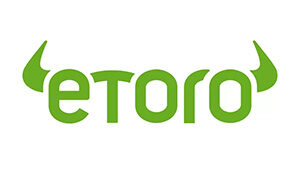
DEGIRO
DEGIRO is a popular choice for investors seeking access to global markets at low fees. It’s known for its transparency and simplicity, and it operates across many countries, including the UK, the US, and much of Europe.
Key benefits:
- Low-cost access to global stock exchanges, including Asia, Europe, and the US
- No account maintenance or custody fees
- User-friendly platform for both beginners and experienced investors
- Transparent fee structure with competitive exchange rates
Read our DEGIRO review to learn more.
Interactive Brokers
Interactive Brokers is a global powerhouse, offering a professional-grade trading platform with access to more than 135 markets worldwide. It is ideal for investors looking to trade international shares across a wide range of asset classes.
Key benefits:
- Extensive market access across 135+ global exchanges
- Extremely low trading fees and tight spreads
- Advanced research tools and analytics for global markets
- Access to not just stocks, but also options, futures, and forex
eToro
eToro is a globally recognised broker known for its social trading platform, which allows investors to copy the trades of successful traders. It provides access to a broad range of international stocks and other assets.
- Equities, ETFs, crypto both real and derivatives
- Social trading e copy trading
- User-friendly platform and demo account
61% of investor accounts lose money by trading CFDs with this provider.
Key benefits:
- Commission-free trading on many international stocks and ETFs
- User-friendly platform with social trading features
- Access to global markets, including Asia, Europe, and the US
- No hidden fees or complex structures for international trading
| Advantages | Cons | ||
| ✅ Diversification | ❌ Beware of brokers that are not regulated by the best international supervisors. | ||
| ✅ The essence of investing is to look for foreign companies | ❌ Diversifying is important, but avoid owning a stock from every country. | ||
| ✅ Better opportunities | ❌ More exotic countries may have higher commissions (lower market liquidity). | ||
| ✅ In highly liquid markets (USA, Germany…) commissions will be very low or zero. | |||
| ✅ They are brokers that allow access to both the national and international markets. | |||
| ✅ They have all types of trading platforms, from simple to more advanced and professional. |
| Advantages | Cons |
| ✅ Diversification | ❌ Beware of brokers that are not regulated by the best international supervisors. |
| ✅ The essence of investing is to look for foreign companies | ❌ Diversifying is important, but avoid owning a stock from every country. |
| ✅ Better opportunities | ❌ More exotic countries may have higher commissions (lower market liquidity). |
| ✅ In highly liquid markets (USA, Germany…) commissions will be very low or zero. | |
| ✅ They are brokers that allow access to both the national and international markets. | |
| ✅ They have all types of trading platforms, from simple to more advanced and professional. |
Always look for brokers regulated by first level organisations (BaFiN, AFN, CSSF, SEC…).
Brokers that Let You Buy Stocks from Your Bank
Many of the most cost-effective brokers are independent platforms, but high street banks also offer the ability to trade shares and invest in the markets.
Bank investment platforms are generally best suited to investors who value convenience and centralised financial management over low fees or a wide range of investment options. If you prefer having your current account, savings, and investments all under one roof — even if it means paying higher charges — a bank broker could be a good fit.
That said, it's important to note that bank brokers, particularly traditional institutions, tend to be more expensive. They often charge higher trading commissions and platform fees, and their investment product range can be more limited compared to specialist platforms. However, in return, they typically offer higher levels of regulatory oversight and perceived security.
While the rise of neobanks is beginning to reshape this landscape — offering more modern, tech-driven investing solutions — their platforms still lag behind the top specialist brokers in terms of depth and features.
Excluding neobanks, here are three of the most notable bank-affiliated investment platforms:
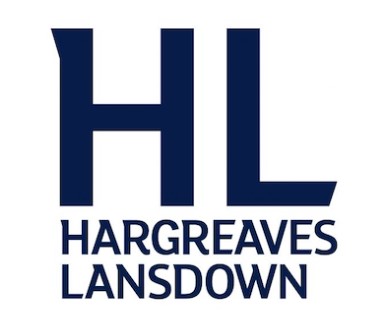


Hargreaves Lansdown
Hargreaves Lansdown, while not a traditional bank, functions similarly with its robust, all-in-one platform for retail investors. Based in the UK and FCA-regulated, it is widely respected for its customer service and comprehensive investment tools.
Key benefits:
- Trusted, UK-based platform with strong regulatory protection
- Broad access to shares, funds, ETFs, and pensions (SIPP/ISA)
- Excellent research tools and educational resources
- Convenient for investors seeking a one-stop solution for long-term investing
Saxo Bank
Saxo Bank is a Danish investment bank with a global reach. It offers a premium trading experience with access to a wide range of global markets and asset classes.
Key benefits:
- Sophisticated trading platform for experienced investors
- Access to shares, bonds, ETFs, forex, and more across international markets
- Strong reputation for security and transparency
- Tiered account structure catering to both casual and high-net-worth investors
Read our Saxo Bank review to learn more.
Barclays Smart Investor
Barclays Smart Investor is the investment platform of Barclays Bank, offering a familiar, secure environment for Barclays customers looking to invest in UK and international markets.
Key benefits:
- Direct integration with your Barclays current account for easy transfers
- Access to UK and global shares, funds, and ISAs
- Backed by one of the UK’s biggest and most established banks
- Good customer service with phone support and secure messaging
| Advantages | Cons | ||
| ✅ Their tax headquarters are usually based in the U.K. | ❌ In general, they are expensive. | ||
| ✅ Regulated by the FCA. | ❌ Their product offering is very limited (usually stocks and ETFs). | ||
| ✅ The convenience of having everything centralised in one account. | ❌ They even have access to few markets. | ||
| ✅ Platforms that are very simple to use. | ❌ They do not allow trading, nor any kind of professional operations. | ||
| ✅ Oriented to profiles very far from the stock market that you only want to make a few operations very occasionally. |
| Advantages | Cons |
| ✅ Their tax headquarters are usually based in the U.K. | ❌ In general, they are expensive. |
| ✅ Regulated by the FCA. | ❌ Their product offering is very limited (usually stocks and ETFs). |
| ✅ The convenience of having everything centralised in one account. | ❌ They even have access to few markets. |
| ✅ Platforms that are very simple to use. | ❌ They do not allow trading, nor any kind of professional operations. |
| ✅ Oriented to profiles very far from the stock market that you only want to make a few operations very occasionally. |
The Best Nominee Stock Brokers
Many investors are understandably concerned about not holding shares in their own name, particularly as most low-cost brokers use omnibus accounts. But what exactly are omnibus accounts, what are nominee shares, and which brokers offer the best solutions for those seeking more direct ownership? Let’s take a closer look.
What are omnibus accounts?
An omnibus account is a pooled account that holds the assets of multiple investors under a single name — typically that of the broker or custodian. While the broker keeps internal records of which shares belong to which investor, the actual shares are held collectively in the broker’s name.
In this arrangement, the investor is the beneficial owner, but not the legal owner of the shares. Transfers and trades occur within the broker’s internal system, without needing to update the shareholder register of the company whose shares are being traded.
Omnibus accounts are common across the investment industry and are used by brokers, fund managers, and institutional investors to streamline trading and reduce administrative costs.
What are registered shares (or certificated shares)?
By contrast, registered shares — sometimes referred to as nominative shares — are held directly in the investor’s name and recorded on the shareholder register of the issuing company. This means that you, as the shareholder, are recognised by the company itself and may receive communications such as annual reports, voting rights notifications, and invitations to AGMs directly.
Registered shares offer an additional layer of transparency and security. In the event of a broker insolvency, for example, shares registered in your name are more easily identifiable as your personal property.
Should you avoid nominee accounts?
Nominee accounts — the standard setup used by most online brokers — are safe and fully regulated in the UK. Investor protection schemes, such as the Financial Services Compensation Scheme (FSCS), and strict client asset rules enforced by the Financial Conduct Authority (FCA), help protect investors even when shares are held in a nominee structure.
However, if your primary concern is direct ownership and enhanced protection, you may wish to use a broker that offers registered shares. This is more commonly found with bank-affiliated brokers, which often allow shares to be registered in your name — though they tend to charge higher fees for this service.
Which brokers offer registered shares?
Most low-cost brokers, such as DEGIRO, Interactive Brokers, and eToro, use omnibus nominee structures to keep costs low and trading efficient.
For registered or certificated shares, your best option is typically a traditional bank broker, such as:
- Hargreaves Lansdown (some shares may be eligible for registration)
- Barclays Smart Investor
- Halifax Share Dealing
These platforms often support holding shares in your own name, though you may need to request this specifically and pay an additional fee.
What to Look Out for When Choosing the Best Stocks Brokers
Broker Safety and Regulation
The first and most important factor to assess is the security and trustworthiness of the broker. Is the broker regulated by the Financial Conduct Authority (FCA)? Are client funds protected under a compensation scheme?
In the UK, FCA-regulated brokers typically fall under the Financial Services Compensation Scheme (FSCS), which may protect your funds up to £85,000 in the event of broker insolvency. This is a crucial safeguard for retail investors.
It’s also worth checking whether the broker is publicly listed. Brokers that are listed on a stock exchange are subject to greater transparency, frequent audits, and stricter financial reporting requirements. While not essential, this can offer additional peace of mind. Many reputable brokers are privately held, but publicly traded ones tend to be more rigorously scrutinised.
Once you've confirmed that the broker is regulated and operates under a credible legal framework, the next step is to evaluate its cost structure.
Reasonable Fees and Charges
A good broker should offer competitive and transparent pricing. Fees generally fall into two categories: transactional (operational) fees and non-transactional (non-operational) fees.
Operational Fees
These include charges for buying and selling shares, ETFs, or other instruments. The best brokers offer low or zero-commission trading, particularly for UK and US-listed stocks.
- For traditional brokers that charge fees, a maximum of £2–3 per trade is acceptable.
- Foreign exchange (FX) fees are also important to consider. Many brokers charge around 0.25% to 0.5% for converting currencies when trading international stocks. Anything above this is worth questioning.
Non-Operational Fees
These are fees that don’t relate directly to trading, such as:
- Inactivity fees
- Dividend processing fees
- Custody or account maintenance fees
A fair inactivity fee would be no more than £10 per year. That said, many modern brokers have eliminated these charges altogether. It’s always advisable to check the fee schedule carefully.
A User-Friendly Platform
The platform itself should be intuitive, stable, and easy to navigate. This includes having access to real-time data, responsive charting tools, and the ability to place different types of orders (e.g. limit, stop-loss, market).
Especially for new investors, a clean, well-organised interface can make a significant difference in usability and overall experience.
Broad Market Access and Product Range
The best brokers offer access to a wide variety of financial instruments and global markets.
At a minimum, you should expect access to:
- UK and US shares
- ETFs
- Funds
As an added benefit, some brokers also provide access to:
- Government and corporate bonds
- Options and futures
- Commodities or forex
In terms of geographical access, a good broker should allow you to invest in:
- The UK
- Major European markets (e.g. France, Germany, Spain)
- North America (the US and Canada)
While some investors prefer to focus on domestic shares, geographical diversification is a core principle of long-term investing. Just remember that the best broker for UK equities may not be the most suitable for investing globally — and vice versa.
What Makes a Good Stockbroker?
To recap, here are the essential characteristics to look for when choosing a broker:
- Regulated by the FCA (or equivalent local authority if outside the UK)
- Client protection via FSCS or other schemes
- Transparent and fair fees, both operational and non-operational
- No hidden charges or complex pricing
- User-friendly trading platform with essential tools
- Access to UK and global markets, with a broad product range
- Optional features such as registered shares or ISA/SIPP support
Selecting the right broker is one of the most important decisions you’ll make as an investor. The right choice can maximise your returns, lower your costs, and provide peace of mind — all essential for long-term success in the markets.
FAQ
How can I determine which broker suits my needs best?
Careful research and comparison of available options will help you make an informed decision.
What criteria should I look for in a broker before opening an account?
Consider broker security, controlled fees and commissions, an intuitive trading platform, and access to a broad range of products and markets.
Why might bank brokers be a suitable chocie for some investors?
Bank brokers offer convenience and centralised finances, but they may have limited product offerings and higher costs.
Disclaimer:
